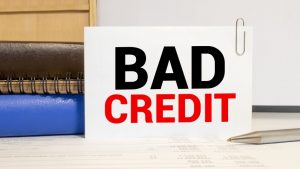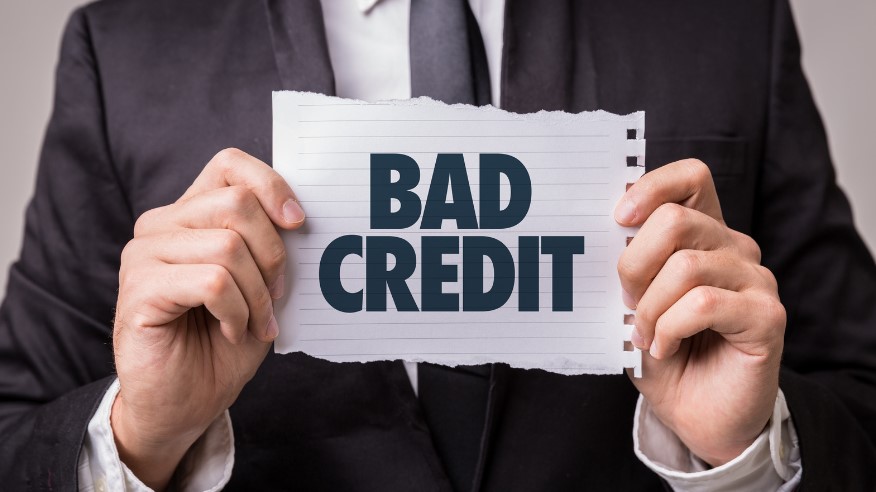If you’re looking to secure a business loan with bad credit, you need to be aware of the risks involved. Not only is it difficult to get a loan with bad credit, but the interest rates on these loans can be high, making the overall cost of the loan very expensive. In this blog post, we’ll provide tips on how to avoid getting a loan with bad credit and find a lender that’s willing to work with you. We’ll also discuss some of the key factors you should consider when choosing a business loan, such as your business’s revenue and credit history.
What is a Bad Business Credit Score?

A bad business credit score indicates a potential risk to financial stability or transactions with the business. Any number of factors, including poor financial management practices, a history of defaults or liens, or a questionable level of customer satisfaction, can cause it. A business credit score is used to determine whether a particular business will be able to receive loans and other forms of financing. A high credit score indicates a more favourable risk for the business and allows it to obtain financing at lower interest rates. A bad business credit score could indicate a potential risk for the business and should be analyzed carefully before doing business with it.
Can I Get a Business Loan With Bad Credit?

Yes, you can get a business loan with bad credit. There are several ways to improve your credit score and get a business loan with bad credit. These include paying your bills on time, using a credit card wisely, and avoiding any unnecessary fees or charges. You can also resolve any debts you have and try to keep your overall debt levels low. If you do these things, you will be able to get a business loan with bad credit. However, it might take some time and effort on your part. But with the right strategy and perseverance, you will be able to overcome this hurdle and secure the financing you need for your business venture.
What Are the Loan Options for a Bad Credit Business?

There are a variety of options for financing a business with bad credit. One option is to obtain a small business loan from a bank or lending institution. A small business loan can be used to fund day-to-day operations, such as paying employees and utility bills, as well as investing in the growth of the business. Another option is to seek out other sources of financing, such as private investors or venture capitalists.
Finally, you may also consider seeking out other forms of financial assistance, such as government grants and loans. There are many ways to finance your business with bad credit, but it just takes some research and determination to find the best solution for you and your business.
What Can I Do to Increase My Credit Score?

Improving your credit score involves a few basic steps. First, take care of your debts by paying them on time and in full every month. It’s also a good idea to pay down any high-interest debt you have, like credit cards or loans with high-interest rates. Keep an eye on your credit report too, as any changes, like new accounts or balances, can affect your credit score. Finally, know what factors impact your credit score and work to improve them if they’re lacking. Communicate with creditors and keep tabs on any fraudulent activity that may impact your score. By following these simple steps, you can increase your credit score and take advantage of the many financial benefits that come with having a higher credit rating, such as lower interest rates on loans and mortgages or better terms for credit cards.
Small Business Loans for People With Bad Credit

Small business loans for people with bad credit are available in several forms, including,
Business credit cards: These are credit cards issued to businesses that allow them to charge purchases to the card. They can then pay the balance off or use the credit line as needed.
Short-term loans: These are loans given to businesses with a short repayment period, generally between one and three years. The interest rate charged on these loans is generally higher than traditional loans but lower than loan interest rates offered by banks.
Short-term lines of credit: These are similar to short-term loans, except they come with a set amount of money that the business can draw on as needed.
Invoice factoring: This is a financial transaction in which a company contracts with another firm (the factoring firm) to provide the funds it needs to meet its obligations. The factoring firm charges a fee for this service, which is typically higher than loan interest rates offered by banks.
Invoice financing: This is similar to invoice factoring but involves an individual or company instead of a third party. Companies will often use invoice financing as an additional source of funding when they need capital but can’t access it through traditional lenders.
Equipment financing: This is similar to short-term and long-term loans, except it involves borrowing equipment such as computers or office furniture rather than money.
Merchant cash advance: This is a form of short-term loan where a business gets money from a third party (such as a bank) instead of lending money itself. The interest rate charged on merchant cash advances is generally higher than traditional bank loans but lower than loan interest rates offered by some companies.
How to Receive a Better Business Loan?

Improving your credit score is one of the first things you should do when looking for a business loan. A strong personal credit score will make it easier for you to secure a loan as well as choose a lender who is willing to lend to you. To improve your personal credit score, focus on making on-time payments and paying off debts in full. You can also work on building your credit history by using credit cards or loans responsibly and paying them off in full each month.
Reviewing your business plan is another important step that you should take before applying for a business loan. Make sure that it’s thorough, realistic, and well-thought-out. It will help the lender evaluate whether or not the business loan is a good fit for you and your company. Reassessing your business plan can help you determine if any adjustments need to be made to make sure that the loan fits your needs and budget well.
Conclusion
A bad business credit score can definitely get in the way of securing financing for your business. But there are things you can do to improve your business credit score, such as making on-time payments, using business credit cards responsibly, and establishing a good credit history. If you follow these tips and apply with a plan of action, you can surely improve your business credit score and secure business loans. When it comes to business lending, small businesses generally get low-risk loans regardless of credit history. So, if you have bad business credit scores, don’t worry. There are options available to help you improve your business credit score.









Leave feedback about this